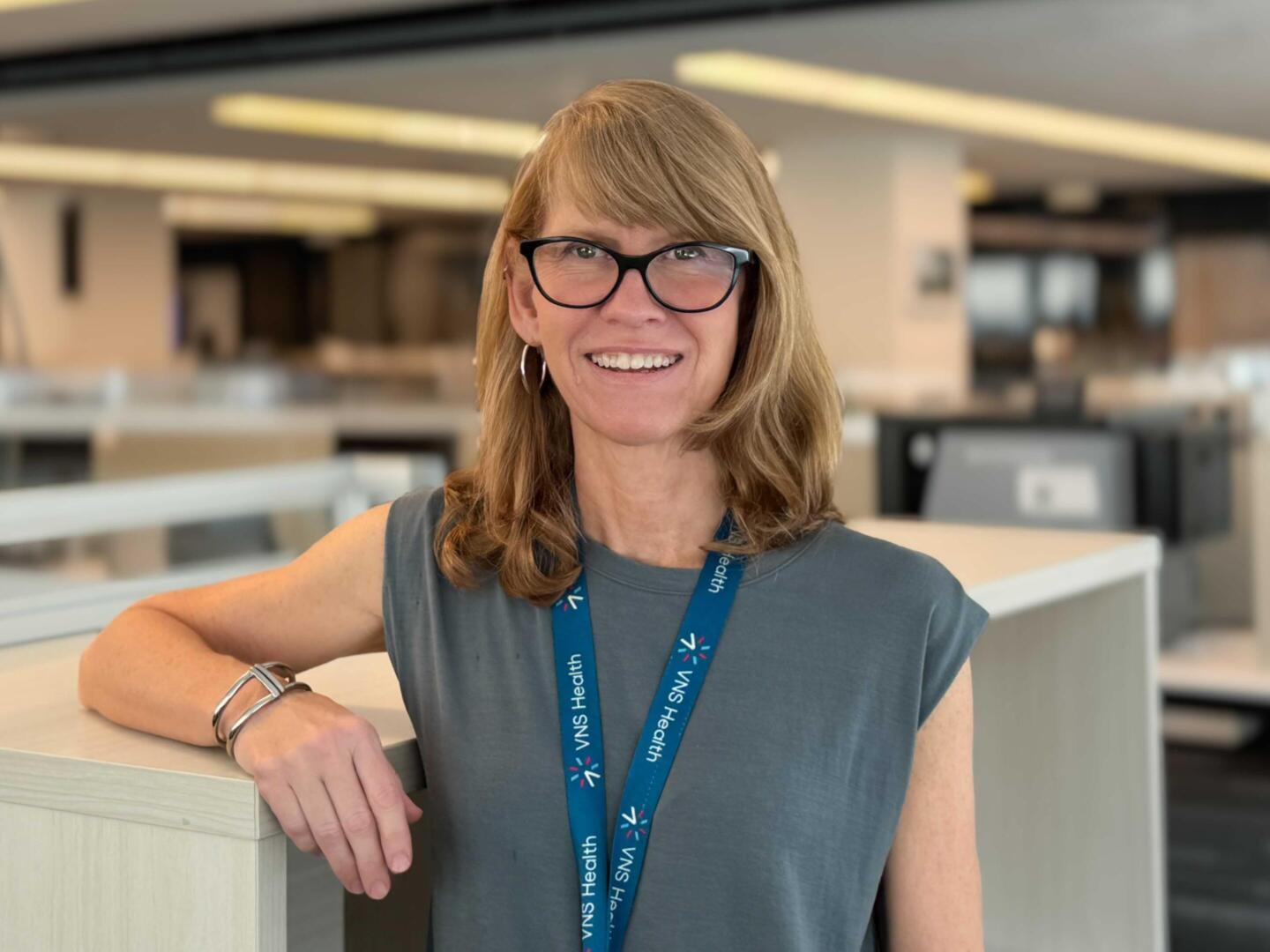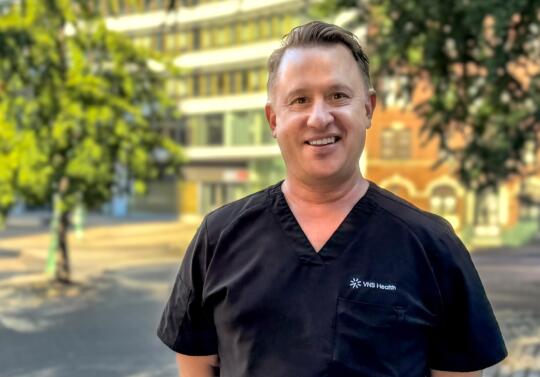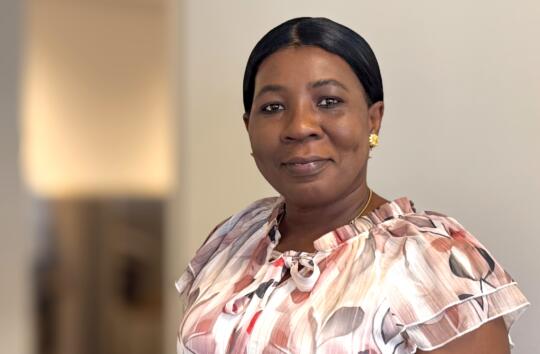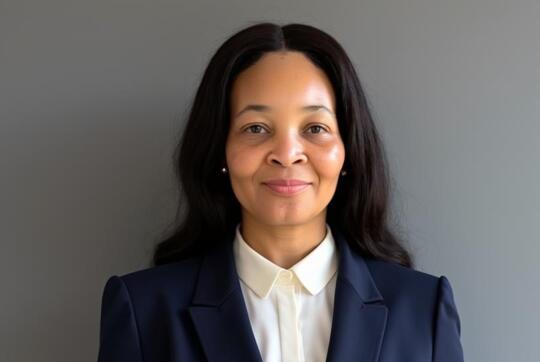Meet Our First-Ever Advanced Practice Clinician of the Year!

The following profile of Caroline Williams, the winner of VNS Health’s inaugural Rose Madden-Baer Advanced Practice Clinician of the Year Award, is being published to coincide with September’s National Advanced Practice Provider Week that takes place annually during the 4th week in September. A total of 14 team members were nominated for this first-time Advanced Practice Clinician of the Year Award. To see a full list of the nominees, please click here.
Over her 18-year career advancing community psychiatry and mental health, Caroline Williams, MD, Chief Psychiatrist and Associate Clinical and Education Director for VNS Health’s Behavioral Health team, has held various leadership roles overseeing teams and training new clinicians. But her first love is frontline care, working directly with individuals who are dealing with behavioral health conditions and related issues.
“Seeing patients, trying to take care of them—that is absolutely the most satisfying part of the job for me,” says Caroline, winner of VNS Health’s inaugural Rose Madden-Baer Advanced Practice Clinician of the Year Award. In 2007, in her first job at VNS Health, as an ACT (Assertive Community Treatment) psychiatrist, she worked exclusively on the frontlines. Today, she oversees the educational initiatives for all Behavioral Health team members and also supports the prescribers (those who prescribe medicine) for a number of Behavioral Health programs, including the Assertive Community Treatment (ACT) program as well as VNS Health’s Mobile Crisis teams and Intensive Mobile Treatment (IMT) programs.
The Advanced Practice Clinician of the Year is a new award this year. Named for the longtime community health trailblazer who founded VNS Health’s Care Management Organization, It honors a medical provider who makes a profound difference in how community care is delivered.
Caroline’s work, said her nomination, “has transformed the lives of individuals facing homelessness, incarceration, substance use, and severe mental illness, and continues to shape a more equitable and compassionate behavioral health system.”
Reflecting on how she seeks solutions to challenges in both individual lives and the greater health care system, Caroline points to Lillian Wald, the nation’s first community health nurse and founder of VNS Health. “I’m so inspired by her,” Caroline says, “how she saw substantial problems in health care and stepped in, building a small army of people who go out and take care of the people who are the least fortunate among us.”
VNS Health’s Behavioral Health team is a modern-day example of that small army. Caroline points to their work with one struggling family who had multiple siblings as VNS Health clients. Over a short span of time, two siblings and their mother died of medical issues. The surviving sibling was subsequently diagnosed with cancer, and was “scared and paranoid and unable to function,” Caroline recalls. Caroline and the ACT team proceeded to create what she calls “a wraparound extended family.” Their support included medication management, assistance buying food and clothing, advocating for the client’s benefits and services and, as Caroline says, just spending time with her.
After two years of intensive services, the client is back to her old personable self. “She has this delightful tendency to look at you really hard and offer a heartfelt compliment,” marvels Caroline. “She always sees the best in people.”
A graduate of divinity school and medical school, Caroline is acutely aware of both the impact and the limitations of the care she and her team deliver. “The goal to understand from the client’s point of view what’s happened in their lives, what they hope for, and how we can help them move toward that,” she explains. “I’d like them to be able to swim in gentler waters.”
But she is also realistic. “We can’t solve all the problems our clients bring to us—for many, they are so profound,” says Caroline. “What we can offer is people in your corner—a team who cares about you and knows you as a whole person.”
For new clinicians, her advice is to understand what they can and cannot control, and to approach the work with both structure and flexibility. This might mean insisting that patients take their medication as a first step to achieving the lives they want, while at the same time understanding that the medication at hand may be limited in its effectiveness.
Ultimately, she adds, clinicians—new and old—should be empathetic, realistic, and above all humble. “What’s the expression? You have to bake with the flour you have,” says Caroline. “We work with clients to help them build a life in the circumstances they find themselves in, and make something meaningful of it.”


